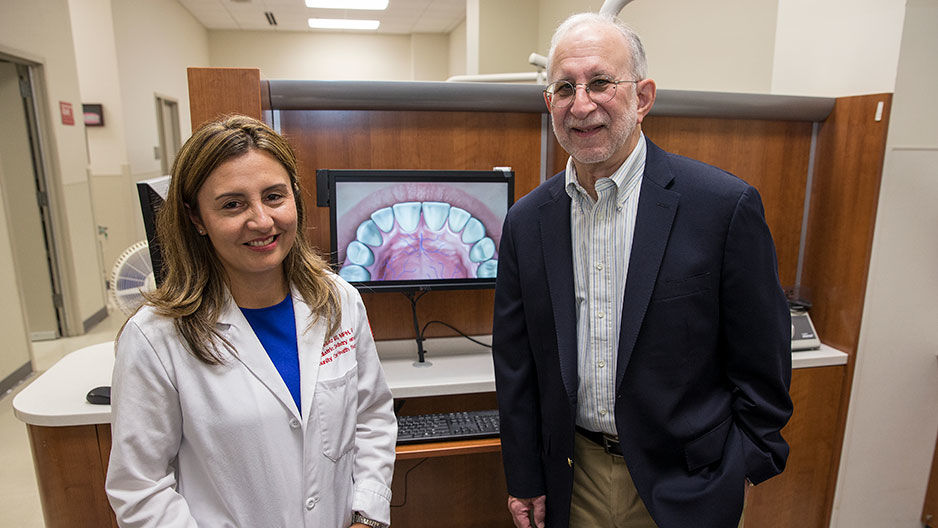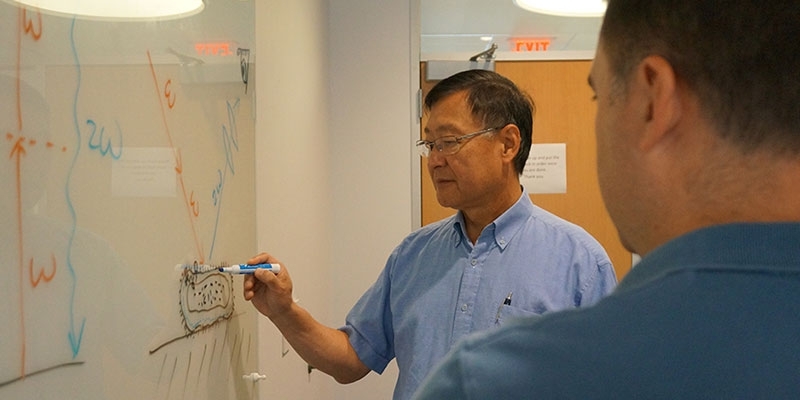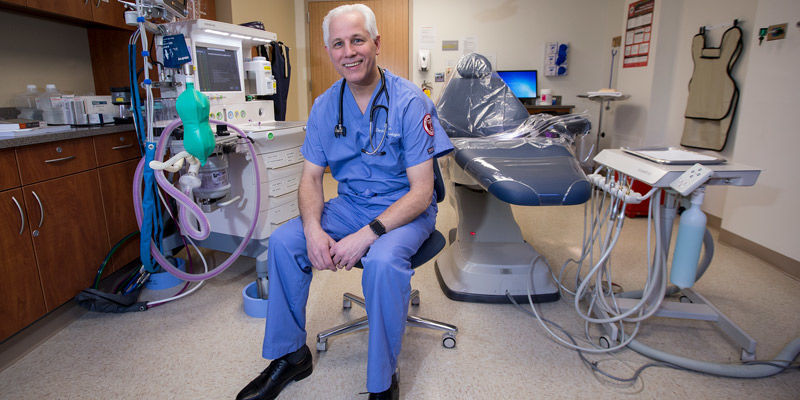Temple attains $2.59 million grant to combat dental anxiety
The National Institutes of Health grant supports a collaboration between Temple University's dentistry and psychology researchers.

The dread many feel about going to the dentist can result in serious health consequences.
"As long as anxiety is greater than pain, you see avoidance," said Marisol Tellez Merchán, associate professor at Temple University’s Kornberg School of Dentistry and residency director of Dental Public Health. "Avoiding dental care leads to delayed treatments, which are typically more invasive. Our aim is to reduce anxiety so patients can get the care they need."
A collaboration between Temple University's dentistry and psychology researchers is showing promising results in the battle against dental anxiety, as evidenced by a $2.59 million award from the National Institute of Dental and Craniofacial Research, a branch of the National Institutes of Health (NIH).
This is the largest NIH grant ever received by the Kornberg School of Dentistry and the latest in a series of multimillion-dollar grants awarded to the Psychology Department of Temple’s College of Liberal Arts. It will fund a five-year clinical trial for 450 patients at Temple’s Faculty Dental Practice in North Philadelphia.
Tellez Merchán’s dentistry expertise is coupled with the clinical psychology expertise of research collaborator, Richard G. Heimberg, the Thaddeus L. Bolton Professor of Psychology in Temple University’s College of Liberal Arts. He runs the Adult Anxiety Clinic of Temple, which most frequently focuses on the treatment of social anxiety and general anxiety.
Dental anxiety, however, seemed like a subject better managed in the dental environment than a psychologist's office.
"Prior to our work, psychology and dentistry didn't have much of a history together," said Heimberg, who credits Amid I. Ismail—dean and Laura H. Carnell Professor in the Kornberg School of Dentistry—with introducing him and Tellez Merchán and supporting their work together.
"We wanted to pursue whether it's possible to put a psychologist's tool in the hands of dental assistants," Heimberg said.
The tool he and Tellez Merchán have developed is an online intervention to help dental patients become more comfortable with treatment.
First, the patient learns about dental anxiety and chooses the three subjects most relevant to them, such as cleanings, X-rays, cavity fillings, root canals, injections or extractions. Then, the patient is shown three videos per topic easing them into the procedure.
In each case, the first video is shown at a distance with animations of the inside of the mouth and voiceover detailing the experience. The second video shows a closer view of the patient's face and the dentist at work as the two talk about coping with anxiety. The third video is the closest, featuring the patient's point of view of the procedure and the patient’s voice describing coping thoughts.
"The goal isn't to make people love going to the dentist," Heimberg said. "But we do want to change anxious thoughts into coping thoughts."
Ismail began seriously thinking about dental anxiety 12 years ago when he observed that some patients refused to seek care even when it was provided for free. That led him to assemble the researchers necessary to plan studies and advance potential solutions. Multiple pilots later, he’s thrilled to see this clinical trial come to life.
"It is exciting to see that after 12 years of working on an idea, we are successfully moving forward with a major clinical trial to test the hypothesis that we can reduce dental anxiety and improve access to dental care," Ismail said.
With their funding secured for the next five years, Heimberg and Tellez Merchán are currently building up their staff and will soon enter the recruiting phase of their clinical trial.
Ultimately, Tellez Merchán says, the impact of their approach could be significant because of its potential to be used by dental practitioners and patients anywhere.
Future iterations, she said, might include translations into additional languages for even greater reach.
Research reported in this publication was supported by the National Institute Of Dental & Craniofacial Research of the National Institutes of Health under Award Number U01DE027328. The content is solely the responsibility of the author and does not necessarily represent the official views of the National Institutes of Health.
—Andy Lochrie


